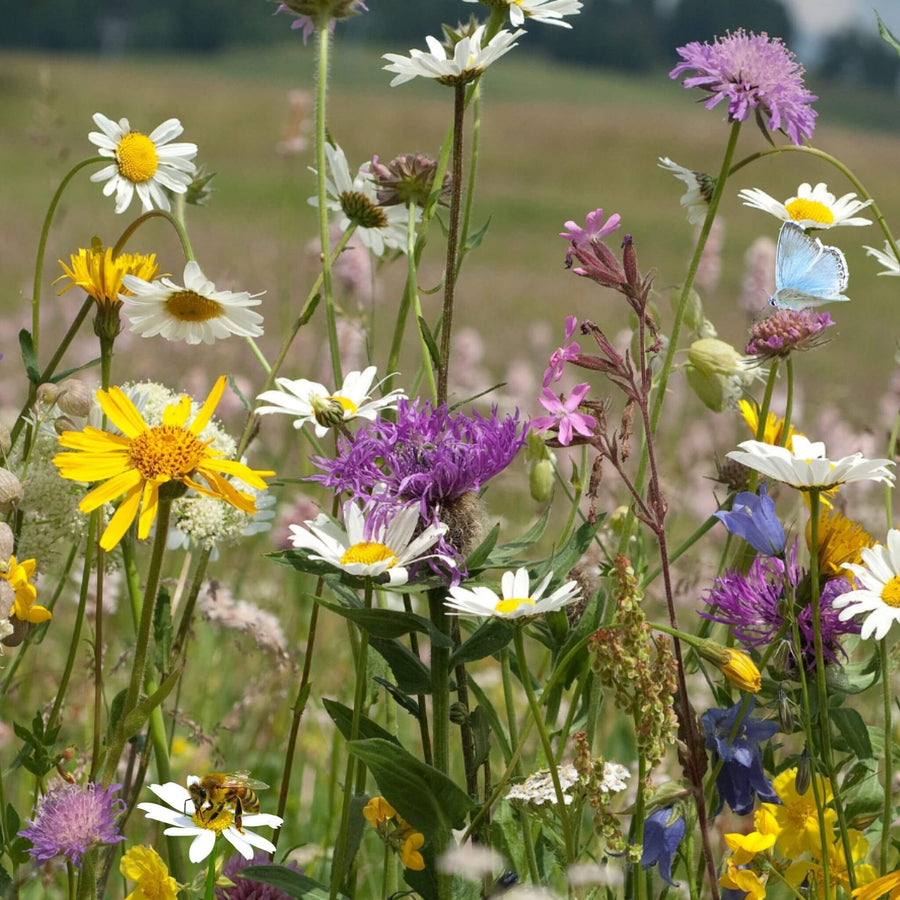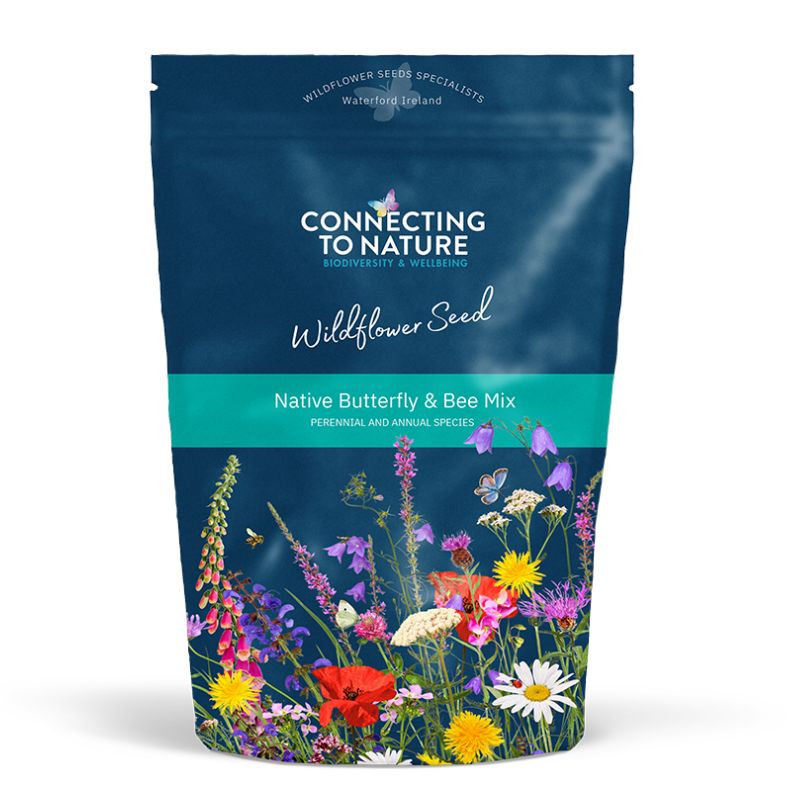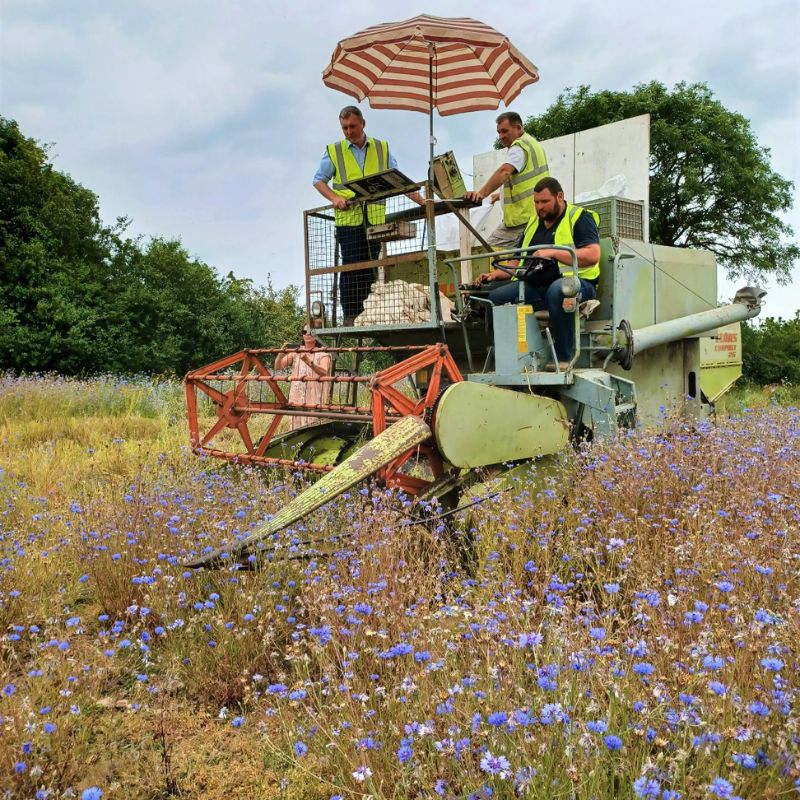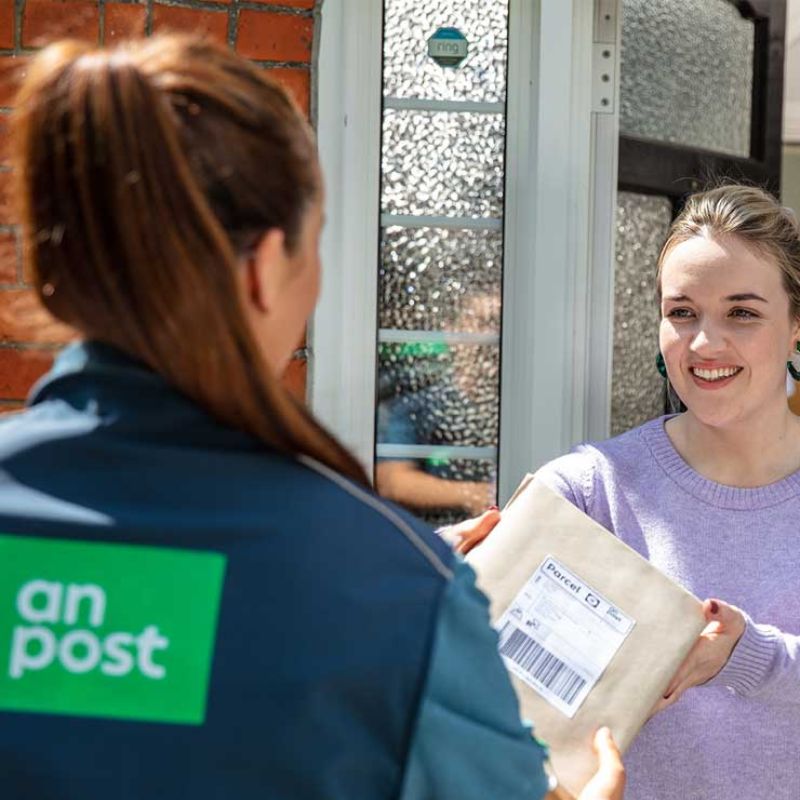FAQs Wild Birds
Frequently Asked Questions | Wild Birds
Why is it important to feed wild birds in autumn?
It is a common belief that winter is the only time we need to feed wild birds.
However, it is more important to feed them consistently through the autumn and then into the colder months of winter.
Erratic weather is part and parcel of autumn in Ireland. We can often go from warm and bright days in early autumn to very quickly wet, stormy, and cold weather. Early frosts can result in food shortages as frozen soils prevent wild birds from accessing worms and other soil organisms. This unpredictable weather inhibits opportunities for wild birds to build up fat reserves before the winter, so we must give them a helping hand. As the seasons change, migratory and non-migratory birds search out potential spots to access a reliable food source.
Wild birds must know where to find a reliable food source and are comfortable visiting before winter sets in. Once they identify your garden as a food source, they will prioritise it over other locations.
How do I prevent large birds and squirrels from eating the wild bird seed?
If Squirrels and larger birds are an issue in your area, then offer the seeds from a squirrel-proof cage feeder and fat balls from a squirrel proof fat ball feeder. You will also help prevent large birds like crows or pigeons from taking all the feed too.
What should I feed wild birds in autumn?
In autumn, the best foods for wild birds are high energy feeds such as peanuts, sunflower seeds, grains, and suet products such as fat balls, helping to build up fat reserves.
Our High Energy No Mess wild bird seed mix and the All-Seasons Garden Mix contain these essential ingredients. They can be placed on a bird table or used to fill bird feeders and provide all the nutrition birds need during the build-up to the winter season.
Our Robin and Songbird No Mess mix contain mealworms, a high protein food that insect-eating wild birds love! This mix also includes peanuts, wheat flakes and suet covered oats, making up a healthy and balanced diet for your feathered friends.
Fat Balls, also known as suet balls, are essential for garden birds as the weather gets colder. Crumble the fat balls onto a bird table or place them inside a Fat Ball Jail to allow for easy and clean access to them.
What is suet?
Suet is a high energy and calorie-rich foodstuff that is perfect for birds during the winter season. It is made using rendered animal fat, often from beef, and contains many additional ingredients that birds enjoy.
Suet or fat balls are vital foods for insect-eating birds. These birds get most of their calories and nutrition from insects hiding or hibernating during the winter months. This scarcity means that these birds must supplement their diet with alternatives such as suet.
Where can I buy wild bird seed?
Buy quality wild bird seed on our online shop. We deliver nationwide.
How long can a baby bird go without food?
Baby birds cannot survive for very long without food. Immediately after hatching, they need to be fed up to 10 times per day. As they grow, this reduces to about 5 times per day. Even so, they cannot survive for much longer than 24 hours if they have no food to eat.
How to stop starlings from eating all the bird food?
Starlings are fantastic birds with a shimmering, spotted plumage. Unfortunately, they tend to gather in large flocks and can clean out a bird feeder in very short order. However, suppose you have many Starlings visiting your garden. In that case, there are a few things you can do to prevent them from becoming a problem at the bird feeder.
A caged feeder will prevent Starlings from accessing the food contained within. The opening must be smaller than 3.8cm to prevent them from fitting through. Starlings tend to eat later in the day. Therefore, putting out the food early in the morning ensures that other birds will be fed long before the Starling horde arrives.
How to make homemade bird food?
Our ornithologists and nutritionists have put together a range of wild bird seeds using quality ingredients. This ensures that nutritional, balanced feed can be made available to our wild Irish garden birds.
We do not recommend feeding human or other animal foods to our feathered friends as they cannot digest cooked animal products, and this can cause them harm. Meat juices can be especially dangerous to birds as disease may be encouraged, causing damage to the bird. In addition, these cooked fats and juices can remove bird feather weatherproofing if they make contact with a wing. This may be a severe problem during cold and wet weather. They also cannot digest dairy products as birds are lactose intolerant.
How long do bird fat balls last
Suet, or fat, balls can last for many months depending on how they are stored and the quality of the manufacture.
The most essential factor in how long they will last is how they are stored. Fat balls should be stored in a cool, dry place in suitable containers. Plastic sealable buckets or boxes are the best way of keeping them. If they get wet, they should be disposed of as moulds and bacteria that are dangerous for birds may develop on them.
Out in the feeder, however, is another matter. Assuming the birds have not eaten them within a day or two, the fat balls should be checked regularly for mould or wetness.
Weather conditions will dictate how long the balls will last outside. Cold, dry weather will allow the balls to keep for up to 10 days, while damp, wet weather might mean that the balls must be removed after 3 days.
Are fat balls good for birds?
Fat balls are an essential foodstuff for many birds. They are critical during the winter months when high energy foods such as insects and fruit are in short supply.
Fat balls offer an easy to digest high energy diet, which helps birds stay healthy during the long cold and wet periods.
Suet is the only type of fat you should feed birds as it is unrefined and does not contain chemicals.
Why won't birds eat my fat balls?
This is a question with many different answers.
In general, birds will always flock to fat balls as they are a quick and easy energy source. Sometimes they may ignore them, however. This may be down to a few different factors.
During cold periods, the fat balls may freeze or become too hard for the birds to eat. Bringing the feeder and balls indoors for an hour or so may soften them enough for the birds to feed on them again.
Fat balls that have been in a feeder for an extended period may start to expire and will not be eaten by birds. If this happens, clean the fat ball holder thoroughly and replace it with fresh product. Observe when the feeders are at their busiest and aim to supply the fat balls during this time.
Sometimes the only thing wrong is location. For example, the feeder may be in an area where birds are prone to attack by predators on the ground or in the air. If the feeder is not being used regularly, try moving it to somewhere else in the garden. A new location may prove preferable to birds if they feel unsafe.
Which birds like fat balls?
Fat balls are a popular treat and essential foodstuff for many birds. Some birds will be more attracted to them than others, however. Birds attracted to fat balls include Blue Tits, Robins, Dunnocks, Great Tits, Starlings and Sparrows.
How to stop big birds from eating all the food
Sometimes larger birds such as Crows and Pigeons will drive off other birds from the feeder or bird table. If larger birds are an issue in your area, offer the seeds from a cage feeder and fat balls from a caged fat ball feeder. This will prevent large birds from dominating at the feeding station.
Does Bird food attract rats?
Poor bird feeder cleaning and tidying will attract rats. While feeding, birds will drop or spill food over the side of the bird feeder or table. Often other birds such as the Blackbird or the Wagtail will pick at the scraps from these areas. However, it is essential to clean away excess food if it is not being eaten from the ground. Failure to do so may eventually attract rats into the area.
How do birds know when food is put out?
Birds are constantly on the lookout for additional food sources and pay attention to new developments in their territory. Often they will be attracted by squabbling noises from other birds who have already discovered your food offering.
They also have exceptional vision and may identify seeds in a feeder from a good distance away. If you put out food at the same time each day, they will become accustomed to dinner time and check back regularly to see if anything has been left out.
How do I stop crows eating bird food?
If Squirrels and larger birds are an issue in your area, then offer the seeds from a squirrel-proof cage feeder and fat balls from a squirrel proof fat ball feeder. You will also help prevent large birds like crows or pigeons from taking all the feed too.










